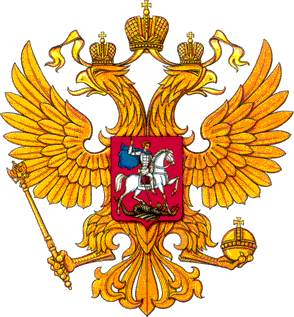Dan Drezner asks “Dear realists: please explain Russia“:
I raise all of this because a few days ago Charles Clover in the Financial Times wrote an interesting story about Russia’s foreign policy in Syria:
A respected Moscow-based military think tank has published a report that is likely to fuel more questions about the wisdom of Russia’s uncompromising support for the Syrian regime. It concludes that Russia really has few – if any – fundamental national interests to defend in Syria….
Russian support for Syria appears to be more emotional than rational, according to the Centre for Analysis of Strategies and Technologies, a consultancy with strong links to Russia’s defence community. It characterised the Kremlin’s Syria policy as a consensus of elites who “have rallied around the demand ‘not to allow the loss of Syria’ ”, which would cause “the final disappearance of the last ghostly traces of Soviet might” in the Middle East.
“The Syrian situation focuses all the fundamental foreign policy fears, phobias and complexes of Russian politicians and the Russian elite” said CAST.
Russia’s actual stake in Syria is not massive, according to CAST. It described Russia’sarms exports to Damascus as a “significant, but far from key” 5 per cent of total arms exports last year, and characterised Tartus, Moscow’s last foreign military base outside the former USSR, as little more than a pier and a floating repair shop on loan from the Black Sea fleet.Now, it sounds an awful lot like CAST is arguing that Russian foreign policy leaders are wildly inflating their interests and acting in a — dare I say it — neoconservative fashion towards Syria.
To which I respond: it depends on the meaning of “realism.”
I suppose I could just stop there. We’ve known for quite some time that “national interest” is a slippery concept (a point I made a few hours ago, come to think of it) — if not best understood as a rhetorical element of the ‘foreign policy’ genre. But if we’re going to play this game, we might start with what I’ll call “realist materialism”– the view that security interests can be assessed simply by crude material indicators. This position is popular among some realists; it holds particularly widespread appeal to critics of contemporary realism.
From this perspective, it should be clear that Moscow has some security interests in Syria. For a country that can’t adequately capitalize its defense industry, five percent (apparently around $4b) isn’t a ton, but it isn’t exactly nothing. To the extent that Syria is Russia’s last ally in the region, that has to count for something as well. But the real question isn’t so much whether Russia’s “material” stakes in Syria are minor, but what costs Moscow faces for supporting the regime. My answer: virtually none. Pretty much all the Kremlin needs to is block UNSC resolutions. No great power is going to inflict material harm on Russia for its stance on the issue. Most of the costs people write about — to reputation — are pretty wooly if we live in realist-materialism land.
But what if we are less dogmatic in our crude materialism — and, I would argue, much closer to modal realism? Then we need to consider additional concerns. First, Russia has good reasons to oppose further erosions of sovereignty norms for repressive regimes. While Russia is a much more open society than many of the authoritarian states (electoral or otherwise) it often gets lumped together with, it is still quite willing to use repressive means to protect the regime and the state (cf. the North Caucuses, where a slow-burn civil war is underway). Second, Moscow is likely still smarting from the fact that it acquiesced to a UN resolution on Libya that quickly became a pretext for NATO-sponsored regime change. Unless something happens to change its calculations, I’m not sure why Moscow should want to do anything to promote western interests in Syria.
Finally, we might move to a more sophisticated realism — one that provides a more traditional, and accurate, understanding of the scope of realpolitik. The Kremlin, in many respects, has a very traditional view of what it means to be a great power. This includes having an acknowledged sphere of influence, extra-regional allies, and a significant voice in the “international community.” We could characterize these motivations as “emotional” or “identity-based” or whatever…. The fact is that they form a coherent, realist, approach to foreign policy. Being a “great power” — and being recognized as such via these trappings — directly enhances international influence, territorial security, and other power-political imperatives.
Daniel H. Nexon is a Professor at Georgetown University, with a joint appointment in the Department of Government and the School of Foreign Service. His academic work focuses on international-relations theory, power politics, empires and hegemony, and international order. He has also written on the relationship between popular culture and world politics.
He has held fellowships at Stanford University's Center for International Security and Cooperation and at the Ohio State University's Mershon Center for International Studies. During 2009-2010 he worked in the U.S. Department of Defense as a Council on Foreign Relations International Affairs Fellow. He was the lead editor of International Studies Quarterly from 2014-2018.
He is the author of The Struggle for Power in Early Modern Europe: Religious Conflict, Dynastic Empires, and International Change (Princeton University Press, 2009), which won the International Security Studies Section (ISSS) Best Book Award for 2010, and co-author of Exit from Hegemony: The Unraveling of the American Global Order (Oxford University Press, 2020). His articles have appeared in a lot of places. He is the founder of the The Duck of Minerva, and also blogs at Lawyers, Guns and Money.



0 Comments